Andrey Minakov: ‘I plan to come to Kazan practically on the eve of the competition’
The Sintez athlete admitted that before his debut at the World Championships, he did not know the best swimmer on the planet at that time
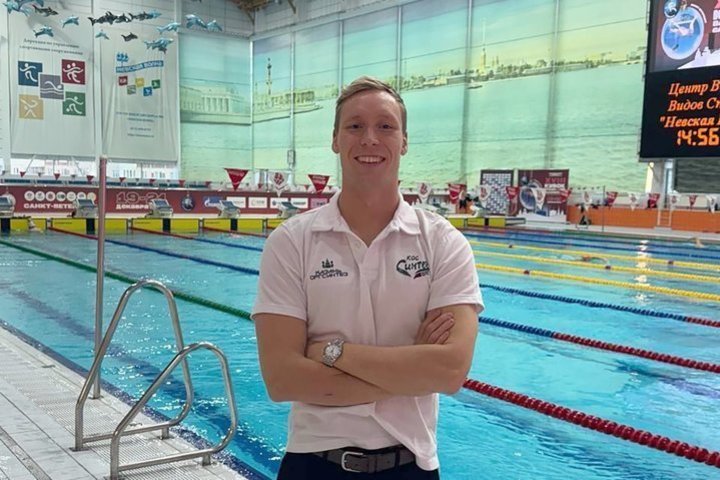
After the US university championships, Kazan swimmer Andrey Minakov plans to come to the Russian Championships, which should be a qualifier for the World Championships in Singapore. In the second part of the interview with Realnoe Vremya, the Sintez athlete spoke about his debut at the World Championships in 2019 and what he remembers about the Olympic year.
“I have developed a respectful relationship with Sun Yang”
Andrey, the 2019 World Championships were your debut with silver in the 100m butterfly. What do you remember about that performance?
I came to the World Championships as a 17-year-old teenager, almost like two years earlier to the Russian Championships in Saransk. I took my competition for granted, I didn’t even study the entry protocols. You won’t believe it, but I didn’t even know who Caleb Dressel was, and at that time he was the main world star in swimming. I didn’t know anyone at all, with the exception, perhaps, of Kristof Milak from Hungary, whom I had crossed paths with many times before.
As for me, the debut at the adult World Championships itself gave me a feeling of high, the team management didn’t put pressure on me. The burden of responsibility didn’t weigh me down. Already at the World Championships itself, I was somewhat surprised by the fact that, being a junior by age, I was able to get out of the water quite well, although not as good as Dressel’s. Then a certain confidence was given by the way I went through the championships, improving my result each time, and the silver medal in the 4x100m freestyle relay. I swam in the semi-finals, and in the evening, sitting in the stands, I saw the guys win silver. By the way, this was the first relay where I became a medallist without participating in the final.
Gwangju was remembered for the scandal that Australian Mack Horton and Englishman Duncan Scott started against Sun Yang, and then there was the news about the disqualification of Shayna Jack from Australia.
I do not remember the moment of Sun Yang's tense relations with his rivals, simply because I myself did not witness everything that happened. But I am surprised to note that I developed a respectful relationship with Sun Yang, and it was his initiative, because when I entered world swimming, he was already a star. Nevertheless, he always said hello, did not become aggressive, did not refuse to communicate. This was formed from the international competition in China, in which our team took part.
I can probably explain the dissatisfaction with Sun Yang on the part of the athletes you listed by one incident that happened in China. There was a very long delay with transport after the starts, when a huge queue formed for the buses, which were not in the parking lot. Moreover, none of the organisers could give any answer, including because English is a problem in China. As a result, the elite of world swimming gathered at the bus stop when Sun Yang's team began to leave the pool, and his team is huge in terms of swimming. Sun Yang himself came out, saw that there were no buses, and instantly, almost as quickly as he swims, returned to the pool. And then I see how three cars, which we did not know at the time, appear out of nowhere near the pool, and now they are the main brands of automobile export to Russia. Some of the swimmers you listed cursed after seeing the picture, but I took it quite simply, understanding what level of stardom Sun Yang has achieved for China.
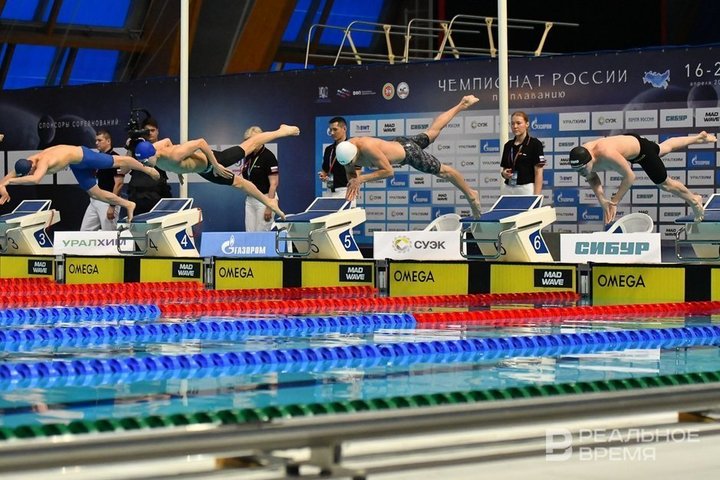
“The first time in Kazan, everything turned out extremely disgusting for me”
2020 is a time when, instead of preparing for the Tokyo Olympics, everyone was sitting at home in self-isolation. Where did you catch the pandemic and wasn't it a motivation to study a topic popular among swimmers called “dry training decides”?
The pandemic caught me in my native Saint Petersburg, and, frankly, I would repeat that period again. Just to understand, I was 18 years old then, we were already preparing to participate in the Tokyo Olympics, and the Olympics were postponed for a year. It was a shame, but when we came to terms with this thought, we entered the training stage normally on home soil. I woke up calmly at eight in the morning, had breakfast, then trained on Zoom, doing the same exercises that we were used to doing in the gym.
As for the topic you mentioned, “dry training decides,” this is muscle work in the gym, which I first seriously took up in 2018. During the pandemic, we did not focus on such training. And I returned to training of this kind after I injured my shoulder and swam with an inflamed tendon at the European Championships, which is why I began to take this side of the training process, which was called “dry training decides”, more seriously.
I want to make a reservation that at the beginning of the interview I said that swimming is not a traumatic sport and this is true, as long as it concerns amateur activities. But even in professional sports, injuries and damage can be avoided if the muscles are ready and a good warm-up is done.
We have already discussed that you were not at the 2021 European Short Course Championships in Kazan. And when did you first visit the capital of Tatarstan, which has been hosting the national championship since 2017?
In the same 2017, at the national short course championships. Then everything turned out as disgusting as possible. I was registered for the 50m backstroke, but I was removed because I put my feet on the shield at the start. In the 100m butterfly, I was swimming in the hope of getting into the top 3, but in the end I did not even make it into the semi-finals. Then at the start, my hands came apart, I touched the bottom, and ended up on the same bottom at the end of the swim. In the 100m freestyle, we sat for about 40 minutes, because the scoreboard broke. I can't speak for the others, but I simply burned out during this time.
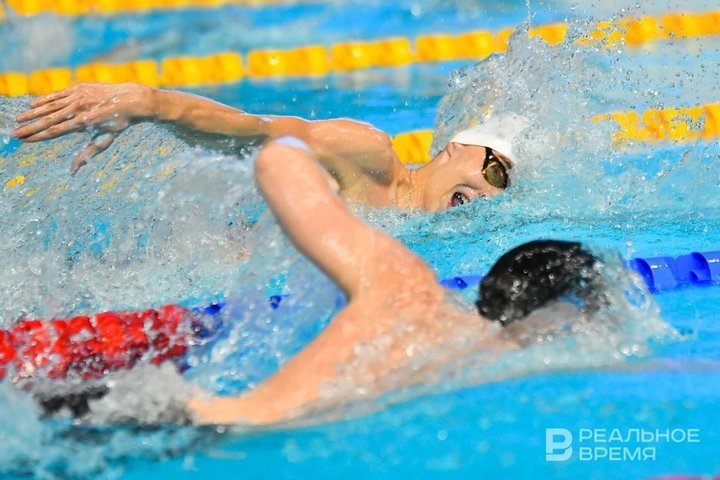
“The team doctors got me back on my feet, for which I am very grateful”
What do you remember about the Olympic year?
We continue to recall the problems, because, again, after Kazan, when the Russian pre-Olympic qualifying championship was held there, I went out to train in St Petersburg, and my spinal disc shifted. I believe the reasons were also overfatigue from the preparatory stage for the championship, after all, it was pre-Olympic, and I did not warm up well enough, and did the twist while still cold. This did not lead to broken vertebrae, it was not dangerous, I just could not walk at all for a week and a half because of the pain. The team doctors got me back on my feet, for which I am very grateful, but in the end I missed a month and returned to the water three weeks before the pre-Olympic European Championships. I swam for two weeks and a week before the European Championships I returned to practicing the jump from the starting block and turns.
In the end, it somehow happened that I succeeded in the 100m freestyle, I became third, and in the profile butterfly I could not do anything with myself, I simply did not have enough power to move myself in the water. But note that in the relays I swam in the gold 4x100m freestyle, and in the medley butterfly “freestyler” Mikhail Vekovishchev swam, and I finished the relay in freestyle, when we became second.
The 2004 Olympics in Athens are fundamentally different from the 2000 Olympics in Sydney in that between them there was a terrorist attack on 8 September 2001 in America. At the Winter Games in Salt Lake City, they had not yet managed to change the security requirements, but since Athens, most of the requirements that we have become accustomed to over time have been introduced. In this regard, Tokyo also stands apart, as do the Winter Olympics in Beijing. If you look at them over the years, these are some kind of competitions during the apocalypse.
You know, but it did not make any impression on me. Either we have already gotten used to these masks during the pandemic, to these requirements for seating in arenas every other spectator. Although, I admit, the seating rule was not particularly observed in Tokyo. Yes, the stands there were not overcrowded, as is usually the case, but the rule for seating every other seat was definitely not observed there. The stands were, if not sold out, then almost completely full.
For me, the sore subject is not the coronavirus and its consequences, but the fact that for the first time in my life I returned home empty-handed. The same relay that we won the European Championship with two months before the Olympics fell apart in Tokyo before the start. I had high hopes for the relay, as it was at the World Championships in Gwangju where the silver I won gave me strength for my individual starts, but no. In the end, 8th place (author's note: even more unpleasant is that in the final we lost to Canada where the former Muscovite Gaziyev, Ukrainian of Canadian origin Kisil swam, but Canada has never been competitive in men's swimming. On the other hand, the star-studded England with Guy, Litchfield and Richards did not make it to the final at all). In the 100-meter butterfly, I finished fourth, and we repeated this result in the 4x100m medley relay. It was very offensive and annoying (author's note: in fact, in order to overtake the Russians, the bronze medallists, the Italians, had to set a national record).
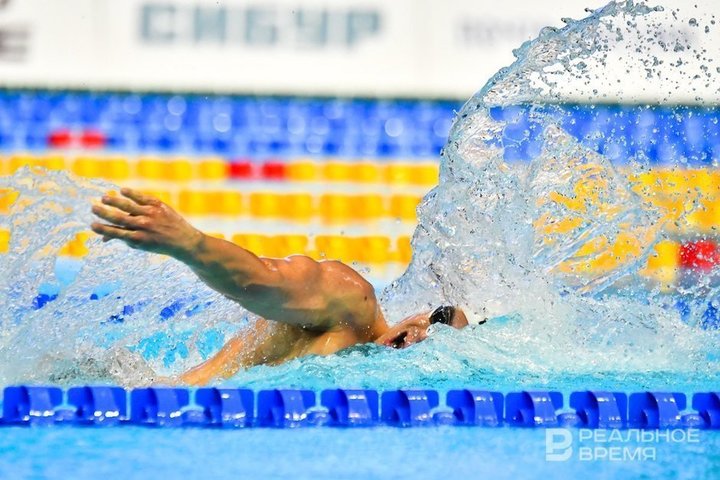
“I basically continued to live according to my usual training schedule”
Six years earlier, after the end of the World Championships in Kazan, some Moscow journalists were ready to devour the president of the swimming federation Vladimir Salnikov or feed him to sharks, if we had any. In Tokyo, the head coach of the national team, Sergei Chepik, was subjected to the same attacks from some of the press. And were you subjected to hostile whirlwinds?
No, except perhaps in anticipation of completely different results, since more was expected of us. Returning to the question of the difference between water polo and swimming, as an individual sport, where there is less dependence on partners in the team with the exception of relays, after all, the properties of an individual sport are such that you concentrate on your own preparation and health, on your own athletic form, its lead-up to the main starts.
What are your impressions of the 2024 World Short-Course Championships?
Kirill Prigoda correctly noted about short course that after the Olympics, those who did not do well at the Olympics themselves come there motivated. It is clear that we were among them. I came to the national team, already from America, where I study, but, thanks to the coaching staff, I was selected for the national team, based on my previous seconds, without selection at the Saint Petersburg National Short Course Championships.
Head coach of the national team Sergey Chepik called me and asked if I was ready to join the national team? I didn't reach my peak form, I wasn't quite ready for health reasons, the problem was that I had been ill, and not after a three-year absence of international competitions, when our last competition was the same World Short Course Championships in Abu Dhabi, I was eager to fight. And it was worth it, when we won the 4x100m freestyle relay, I told my teammates on the championship team that it was supposed to be like that.
Until 2021, you lived according to one preparatory schedule, to put it simply, reaching your peak form before the national championship, as a selection for international competitions, the second peak form — before the World Championships, European Championships, and Olympics. Having lost international competitions, did you change your preparation schedules and time periods with peak form?
Personally, by and large, I continued to live according to the usual preparation schedule, with the same peak form as before. The body has already gotten used to the fact that the main competitions are in the summer, but to get to the main competitions, you need to be at your peak in the spring. Otherwise, you can reach your peak form, but, not getting to the main competitions, sit in your best form in front of the TV screen.
Although for me the best option would be, for example, like that of my competitor in butterfly Noah Ponte from Switzerland, who is selected for international competitions by the fact of his existence. In his country, he is the undisputed leader, he does not need to be selected anywhere and can focus on preparing for the Olympics, world championships, European championships. There are few such swimmers in the world, who are head and shoulders above everyone else in their countries, but they exist and often provide competition to representatives of swimming nations that are forced to live in an environment of constant competition.
“As for football, like many native Petersburgers, there is only one Zenit in my heart”
Swimming is not the most popular sport in Switzerland, unlike in America, where you study, and the excitement around university championships in swimming, track and field, and especially, of course, basketball is known to all sports fans.
In America, the interest in university sports is so breath-taking that it takes your breath away. By the way, we talked about the fact that swimming is an individual sport, but in America even it is part of a certain pool of sports, where everyone is one team. You swim your individual distance, but it is important for the university management that your medals and points are added to the common pool. By the way, they take place two weeks before the start of the Russian championship, and it is very convenient to reach peak form, with which you then go to compete in your homeland. This year, by the way, I plan to arrive practically on the eve of the starts, without going through the acclimatisation process.
Recently, the starts in Kazan have become your home, since you have joined Sintez sports club.
I would like to express my deep gratitude to Sintez, because one of the reasons for my transfer to the Tatarstan national team and to this club is the love and support for sports in the republic. They have created a system here that I have often encountered abroad, and even some cities that are very advanced in terms of swimming development have never even dreamed of such a system of functioning of the sports club.
We have excellent relations with Kazan coach Alexey Kuznetsov, respectful, friendly. He is always in touch, especially when his help is needed, and this was an additional motivating factor in my transfer to Tatarstan and the Sintez team. I am happy to represent Tatarstan in the all-Russian arena, moreover, having become a member of the national team, I also became a fan of Ak Bars, combining it with rooting for S. Petersburg SKA HC. True, regarding football, like many native Petersburgers, I have only one Zenit in my heart. Since childhood, when I was just switching from alpine skiing to swimming, I became a fan of Zenit when it still played at the old stadium Petrovsky. I even know the Brazilian Russian Malcom, an Olympic champion who played for Petersburg.
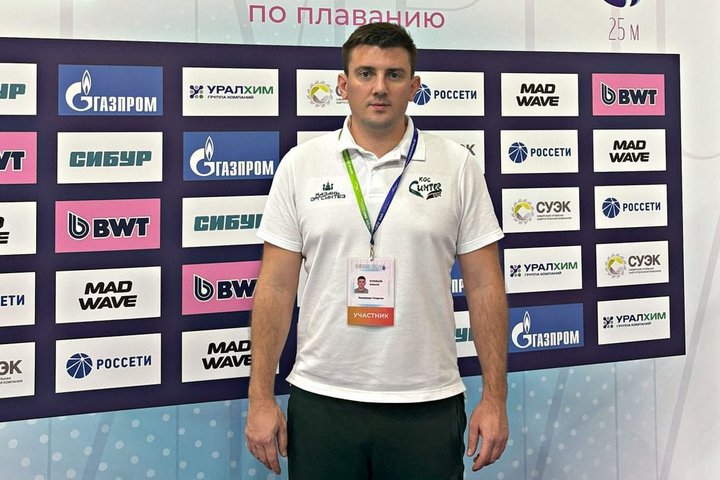
Concluding the topic of interest in swimming in the USA, there, at the pre-Olympic national championship, which took place at the football stadium, just like, by the way, it was in Kazan at the 2015 FINA World Championships, so, in America, 22,000 people gathered in the stands at the same time. Moreover, these 22,000 people create such a noise reaction that it is mesmerising.